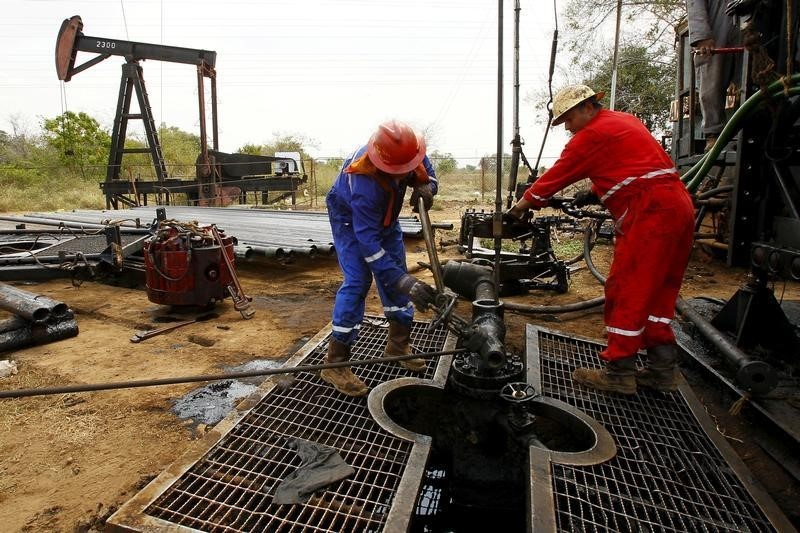By Devika Krishna Kumar and Florence Tan
NEW YORK/SINGAPORE (Reuters) - South Korea has begun testing super-light U.S. oil sold by energy firm Anadarko Petroleum Corp (NYSE:APC) as a substitute for Iranian crude as it awaits word from Washington whether it can keep buying oil from the Middle Eastern nation, sources said.
South Korea is one of Iran's biggest Asian customers, and was one of eight importers that received waivers to keep buying Iranian oil when the United States re-imposed sanctions in November.
Washington is expected to reduce those waivers in May, disrupting South Korea's supply of Iranian condensate, an ultra-light crude oil that is used in its large refining and chemical industry.
West Texas Light (WTL) is seen as a potential substitute for Iranian condensate because, when refined, WTL yields a large volume of the refined product naphtha, which can be used to produce petrochemicals. Most WTL is produced in the western part of the Permian Basin in Texas.
Anadarko spokesman John Christiansen confirmed the company is exporting WTL, and said they "anticipate those volumes will continue to grow in the future", although he did not confirm whether South Korea was testing this grade.
South Korea's top refiner SK Energy, and the country's smallest refiner Hyundai Oilbank are studying the crude's assay and testing samples, the sources said.
"The crude's API seems to be 48 degrees so in a way it's possible (to replace Iranian condensate) but again we need to check the oil's quality," one of the sources said.
The source is referring to the so-called API gravity of the crude, which measures its density and indicates the type of fuels an oil yields when refined.
A spokeswoman from SK Innovation, owner of SK Energy, and a spokesman from Hyundai Oilbank declined to comment.
South Korea's interest in West Texas Light is occurring as record U.S. oil production and exports have allowed the Trump administration to use energy as a pressure point in foreign policy. Its largest-scale efforts have been sanctions against Iran's and Venezuela's oil industry.
Seoul has been negotiating with the United States to extend its waiver, saying there are few alternatives to the Iranian condensate it buys, according to a former U.S. official. Yet to gain an extension South Korea will likely have to reduce its current imports by between 5 percent and 20 percent, three sources familiar with the matter said.
South Korea, a close U.S. political ally, also does not want to jeopardize its relationship with Washington.
"They're scared of Trump. They want to be able to say, 'Look at me, I am buying all your crude,'" said Sandy Fielden, director of oil and products research at Morningstar.
In talks last week with government officials, South Korea asked for maximum flexibility by stressing the importance of Iranian condensate for the South Korean petrochemical industry, according to a statement from the Ministry of Foreign Affairs released last week.
Washington is trying to cut Iran's oil exports to less than 1 million barrels per day (bpd), down from more than 2.5 million bpd last May.
South Korea imported about 176,237 bpd of Iranian crude in the January to February period, according to data from the Korea National Oil Corp (KNOC), down 38.5 percent from the same period a year earlier.
U.S. crude exports to South Korea averaged about 256,000 bpd in 2018, according to the U.S. Energy Department. But, imports in February surged to 443,000 bpd, the KNOC data showed.
South Korea has been buying other types of U.S. light crude, but two buyers - SK Energy and Hyundai Oilbank - recently turned down cargoes of Eagle Ford condensate from Texas after the oil was found to contain impurities.
WTL has largely been blended with other oil grades to be sold at the Cushing, Oklahoma, delivery point for U.S. crude futures.
